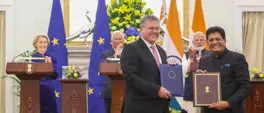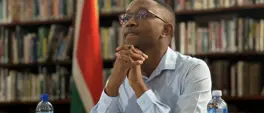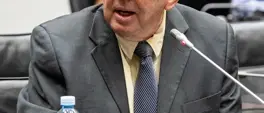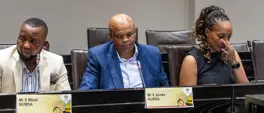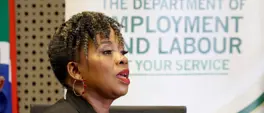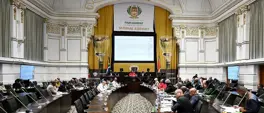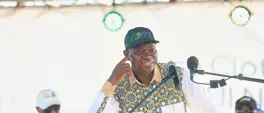SA pulls off Africa’s first G20 Summit, clinches early consensus
Chante Ho Hip
24 November 2025 | 10:28“This year has been described as perhaps more difficult than others,” says Zane Dangor, Director-General of the Department of International Relations and Cooperation.
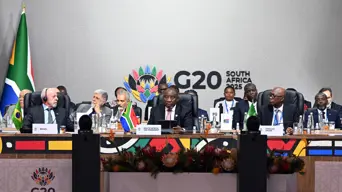
President Cyril Ramaphosa (C) concludes the G20 Leaders’ Summit at the Nasrec Expo Centre in Johannesburg on 23 November 2025. Picture: X/g20org
After more than a year of preparation, South Africa successfully hosted the first G20 Leaders’ Summit on the African continent over the weekend.
From theme development to venue selection and establishing a governance architecture, Zane Dangor, Director-General of the Department of International Relations and Cooperation, reveals it was a complex diplomatic process.
Speaking to Clement Manyathela, he says the summit merely represents the culmination of intense negotiations through ministerial meetings and working groups.
A VICTORY FOR MULTILATERALISM
— The Presidency 🇿🇦 (@PresidencyZA) November 23, 2025
South Africa has successfully hosted the first G20 Leaders’ Summit to be held in Africa, with President @CyrilRamaphosa highlighting the South Africa’s commitment to “Solidarity, Equality, Sustainability”.#G20SouthAfrica 🇿🇦… pic.twitter.com/TE3PcvrufO
This year’s negotiations proved to be particularly challenging due to a boycott by the United States and its close ally, Argentina.
“Negotiations in the G20 can be difficult under the best of circumstances, particularly geopolitical matters, but this year has been described as perhaps more difficult than others,” says Dangor.
He adds, “What we have encountered this time around is not just joining a consensus but not choosing to participate and using misinformation as the basis for that nonparticipation. This was unprecedented; the voluntary absenteeism of a member.”
Dangor says it raised fundamental questions about consensus-building in multilateral forums.
RELATED:
G20 Leaders' Summit: Lamola hails renewed commitment to multilateral cooperation
UK envoy praises SA for steering historic G20 Summit: 'It was a very successful occasion'
“Eventually, we all agreed that consensus is about those who participate, and there is no prohibition on anybody participating. Unilateral action should not be allowed to undermine the work of the collective."
He says South Africa strategically secured consensus on the Joint Declaration on day one, allowing leaders to focus on substantive discussions rather than negotiations.
All of South Africa’s priorities were successfully adopted into the agreement, including frameworks for critical minerals, artificial intelligence, debt sustainability, and gender equality.
[DOWNLOAD]: G20 Declaration issued by the Leaders of the Group of Twenty (G20)
— The Presidency 🇿🇦 (@PresidencyZA) November 23, 2025
🔗 https://t.co/VY2GN9ChtD#G20SouthAfrica 🇿🇦#BetterAfricaBetterWorld 🌍 pic.twitter.com/u9FbDqgnsf
“We were also quite aware that pressure would be put on the longer the document stays open and not approved,” he says.
The challenge now shifts to the implementation and tracking processes post-summit.
To listen to Dangor in conversation with 702’s Clement Manyathela, click below:
Get the whole picture 💡
Take a look at the topic timeline for all related articles.

